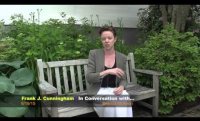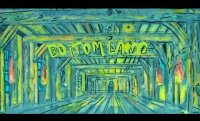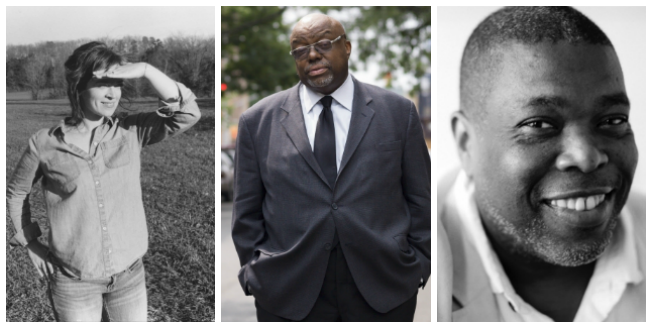At a ceremony Wednesday night in New York City, Adam Johnson was named the winner of the 2016 Story Prize for his collection Fortune Smiles (Random House). The $20,000 award is given annually for a short story collection published during the previous year.
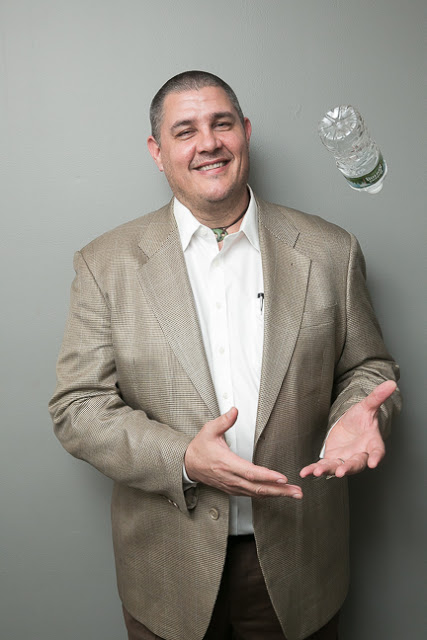 The two runners-up for the prize were Charles Baxter for There’s Something I Want You to Do (Pantheon) and Colum McCann for Thirteen Ways of Looking (Random House). Each finalist received $5,000. The Story Prize Spotlight Award—an additional prize of $1,000, given for a collection of exceptional merit—went to Adrian Tomine for his collection of graphic short stories, Killing and Dying (Drawn & Quarterly). During Wednesday night’s event, all three finalists read from and discussed their work on stage with prize director Larry Dark.
The two runners-up for the prize were Charles Baxter for There’s Something I Want You to Do (Pantheon) and Colum McCann for Thirteen Ways of Looking (Random House). Each finalist received $5,000. The Story Prize Spotlight Award—an additional prize of $1,000, given for a collection of exceptional merit—went to Adrian Tomine for his collection of graphic short stories, Killing and Dying (Drawn & Quarterly). During Wednesday night’s event, all three finalists read from and discussed their work on stage with prize director Larry Dark.
Last November Fortune Smiles took home the National Book Award, which makes Johnson the first author to win the Story Prize and the National Book Award for the same title. He is also now the first author to have won the Story Prize, the National Book Award, and the Pulitzer Prize, which he received in 2013 for his novel The Orphan Master’s Son. Johnson is also the author of the story collection Emporium and the novel Parasites Like Us. He has received a Guggenheim Fellowship, a Whiting Award, a National Endowment for the Arts Fellowship, and a California Book Award, among other accolades. He lives in San Francisco and teaches creative writing at Stanford University.
Dark and Story Prize founder Julie Lindsey selected the three finalists from among a hundred books submitted in 2015, from sixty-four different publishers. A panel of three judges selected the winner: author and previous Story Prize–winner Anthony Doerr; Rita Meade, a librarian at the Brooklyn Public Library; and New Yorker staff writer Kathryn Schulz.
“Fortune Smiles is an electrically imaginative story collection that’s wrestling very hard with the world we’re living in right now,” the judges said. “Johnson writes like Rembrandt painted, richly and specifically, with an inclination toward self-portrait and a gift for making it seem like a whole world carries on not only within but beyond each of these small canvasses.”
Established in 2004 to honor collections of short fiction and to attract more attention to the form, the Story Prize boasts the largest first-prize amount of any fiction award in the United States. Previous winners include Elizabeth McCracken, George Saunders, Claire Vaye Watkins, and Steven Millhauser.
Photo credit: Beowulf Sheehan





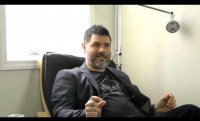
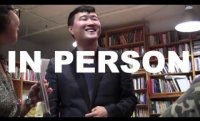
 The two runners-up for the prize were Charles Baxter for There’s Something I Want You to Do (Pantheon) and Colum McCann for Thirteen Ways of Looking (Random House). Each finalist received $5,000. The Story Prize Spotlight Award—an additional prize of $1,000, given for a collection of exceptional merit—went to Adrian Tomine for his collection of graphic short stories, Killing and Dying (Drawn & Quarterly). During Wednesday night’s event, all three
The two runners-up for the prize were Charles Baxter for There’s Something I Want You to Do (Pantheon) and Colum McCann for Thirteen Ways of Looking (Random House). Each finalist received $5,000. The Story Prize Spotlight Award—an additional prize of $1,000, given for a collection of exceptional merit—went to Adrian Tomine for his collection of graphic short stories, Killing and Dying (Drawn & Quarterly). During Wednesday night’s event, all three 
